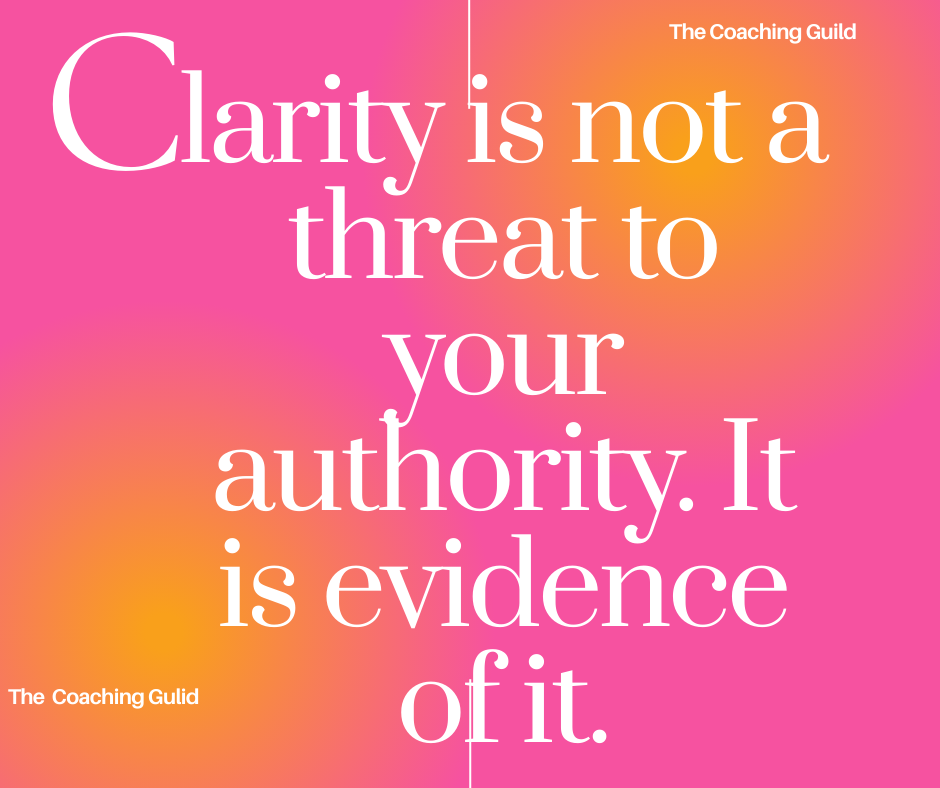Joy Zalzala-Soyka

n case you’re wondering what’s happening at The Coaching Guild this week, our students got to meet and interview mentor coach Joy Zalzala-Soyka. It was a treat because Joy is amazing.
Joy’s home base is Berlin, Germany. She is currently traveling the world with her wife and kids without skipping a beat in her coaching practice. This isn’t a once-of-a-lifetime trip for her family. It is the way they have designed their lives. Joy and her wife take their family on the road internationally frequently, often for months at a time. Joy has grown a very successful and portable coaching practice. I know a lot of people who have the dream to live that way. Joy and her family have made that dream a living reality.
Personally, one of my primary motivations for becoming a coach was location independence. I am a woman who loves to roam. I wanted to be able to travel and coach. I didn’t want to be constrained by a job that gave me three weeks a year to experience life while traveling. I always said my sweet spot was going to be coaching on a sunny beach somewhere year-round. I think I have done a pretty good job of taking advantage of the freedom of being a coach. I live in Mexico now. I can coach from a sunny beach whenever my heart desires. It is a thing of beauty.
That said, Joy is the master of living the freedom dream with her family. She is raising her family with the world as a backdrop. Her kids aren’t just learning about other cultures in textbooks. They are living and learning globally. To say it is aspirational is an understatement. I am always inspired by where her inspiration takes her.
Joy Zalzala-Soyka may be the most interesting and successful coach you haven’t heard of BECAUSE statistically Joy probably is not marketing to you.
Joy specializes in working with people in biracial / multicultural relationships and people from various lesbian, gay, bisexual, trans* and inter* communities. The work Joy does is a living example of the power of intentional diversity in coaching practice. Her highly developed skillset working in minority and disenfranchised communities opens doors for a greater audience who might never find their way to coaching if not for work like hers.
The coaching industry has a diversity problem, both on the provider side and on the consumer side. There simply are not enough minority coaches. That is obvious to anyone who takes more than a few seconds to check out any given coaching directory. However, there are also not as many clients from minority communities as there should be. Our industry as a whole provides very little outreach to them.
There are very few obvious ways for people from disenfranchised and minority communities to engage in qualified coaching support. Almost all life coaches are straight white women. As a general rule, we have not prioritized building bridges or doors to support for people who don’t look like us and/or have lives like ours. It is short-sighted and costly for everyone.
Coaches like Joy make it possible for potential clients from more diverse life experiences to see themselves getting support from a coach who can meet them where they are. As a whole, when we focus on diversity, everyone wins. First and foremost, clients win. For the record, when the system is set up for what is best for clients, coaches make money. Client-first-based marketing is the only strategy that is sustainable if you want to build a practice that lasts longer than a few months.
I think there is a subtle, sneaking, unspoken belief that working with diverse communities isn’t where the money is. That is factually not true. In fact, diverse client markets are emerging and often untapped. While most coaches focus on marketing, (pandering), to straight white clients they perceive as having money, other pools of potential clients remain untapped and wondering where and how they can plug into coaching support.
I wish we had just as many conversations in coaching circles about purpose, meaning, and service as we do about money and profit. However, let’s face it, for a coaching practice to be sustainable, you have to make a living doing your work.
Joy’s work embodies what is possible in a coaching practice that centers and elevates diversity. Let’s face it, in more ways than one; Joy is living the dream while working her calling. Joy proves that a focus on diversity can be meaningful AND profitable. Joy changes lives and makes money, all while NOT selling herself or her soul with traditional marketing to a conventional audience.
Like I mentioned at the top of this post. Joy may be the most successful coach you don’t know. She isn’t blasting the masses on social media. Her clients are not buried in the fray on Facebook. In fact, for political reasons, many of them might avoid Facebook and other social media outlets altogether. Joy markets organically, through relationship building and referrals. Joy has built her dream her way on a platform of her making.
The opportunity to learn from coaches like Joy Zalzala-Soyka is just one of the many reasons The Coaching Guild is doing coach training differently. We are doing comprehensive multidiscipline training AND we are learning from the best of the best WITH a focus on intentional diversity.
The wisdom and experience of a coach like Joy engages a kind of learning experience that goes beyond what you can read in a book or learn in a single-point-of-view training program. The nuances of learning from people who coach from different perspectives make the Coaching Guild learning experience unique and powerful.
Learning from the best of the best in a variety of disciplines and a variety of backgrounds helps a coach build a foundation of skill and knowledge that is unsurpassed in our industry. The Coaching Guild isn’t just making a space for diverse coaches. We are committed to moving them to the front of the room and learning from them. We are better off for it, every time, without exception.


